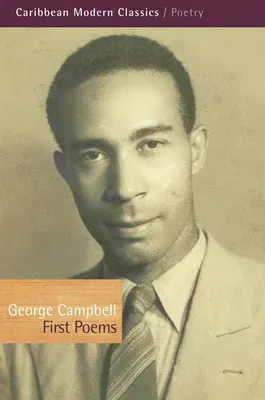When they first began to appear in the 1930s, George Campbell's poems
blasted through the colonial Victorianism of contemporary Jamaican
poetry. Dubbed 'the poet of the revolution' by Jamaica's founding
political father, Norman Manley, Campbell was the one Caribbean poet
whom Derek Walcott acknowledged as an inspiration.
Campbell wrote about the struggle for independence and the appalling
social conditions that drove the Jamaican masses to revolt, and about
the rising consciousness of black Jamaicans after centuries of
oppression. He wrote out of a consciousness of history and religious
faith, a faith in which, for him, Jesus and Lenin were not incompatible
icons. He also wrote about love, its ecstasies and bitter
disappointments, and some of his very best poems are luminous
celebrations of Jamaica's natural beauty.
George Campbell was born of Jamaican parents in Panama in 1916 and
lived variously in Columbia and Costa Rica before returning to Jamaica.
He became intensely involved in the nationalist movement and with the
Manley family, who championed the poetry he was beginning to write.
First Poems appeared in 1945. In the same year, Campbell migrated to
New York, where he worked in theatre and dance. In 1978, he returned to
Jamaica, working as a consultant to the Institute of Jamaica and the
People's National Party archives. In 1994 he returned to New York, where
he died in 2002.

